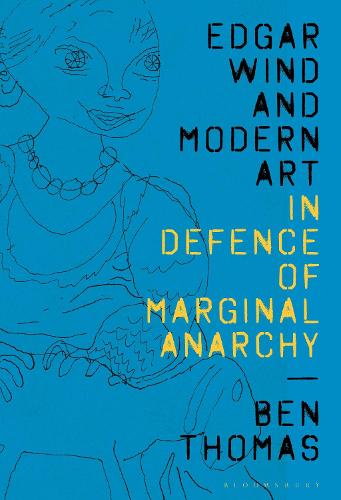
Edgar Wind and Modern Art: In Defence of Marginal Anarchy
(Paperback)
Publishing Details
Edgar Wind and Modern Art: In Defence of Marginal Anarchy
By (Author) Ben Thomas
Bloomsbury Publishing PLC
Bloomsbury Visual Arts
25th August 2022
United Kingdom
Classifications
Tertiary Education
Non Fiction
Individual artists, art monographs
History of art
709.04
Physical Properties
Paperback
272
Width 154mm, Height 234mm, Spine 18mm
420g
Description
This book presents the first comprehensive study of the philosopher and art historian Edgar Winds critique of modern art. The first student of Erwin Panofsky, and a close associate of Aby Warburg, Edgar Wind was unusual among the Warburgians for his sustained interest in modern art, together with his support for contemporary artists. This culminated in his respected and influential book Art and Anarchy (1963), which seemed like a departure from his usual scholarly work on the iconography of Renaissance art. Based on extensive archival research and bringing to light previously unpublished lectures, Edgar Wind and Modern Art reveals the extent and seriousness of Winds thinking about modern art, and how it was bound up with theories about art and knowledge that he had developed during the 1920s and 30s. Winds ideas are placed in the context of a closely connected international cultural milieu consisting of some of the leading artists and thinkers of the twentieth century. In particular, the book discusses in detail his friendships with three significant artists: Pavel Tchelitchew, Ben Shahn and R. B. Kitaj. In the process, the existence of an alternative to the prevailing formalist approach of Alfred Barr and Clement Greenberg to modern art, based on the enduring importance of the symbol, is revealed.
Reviews
In this absorbing book, a revered art historian who specialised in the Renaissance is given a new lease of life. Edgar Wind believed that creative art and criticism are not fundamentally distinct, and Ben Thomas convincingly brings out the relevance of his thinking to a range of major twentieth century artists including Paul Klee, Ben Shahn and R.B. Kitaj. * Stephen Bann, Emeritus Professor of History of Art, Bristol University, UK *
In a magisterial study, Ben Thomas draws out the significance of an under-examined phase in the life of Edgar Wind (1900-1971), philosopher and art historian, a brilliant member of the circle around Aby Warburg in Weimar-era Hamburg. As Thomas reconstructs and situates Winds work on 'the tradition of symbols', he opens up fresh means for approaching artistic developments typically viewed through the lens of formalism. * Elizabeth Sears, George H. Forsyth Jr. Collegiate Professor of the History of Art, University of Michigan, USA *
Surprisingly this is the first comprehensive study of Winds critique of modern art. A rich and timely undertaking. * Leonardo Reviews *
Author Bio
Ben Thomas is Reader in History of Art, University of Kent, UK.
